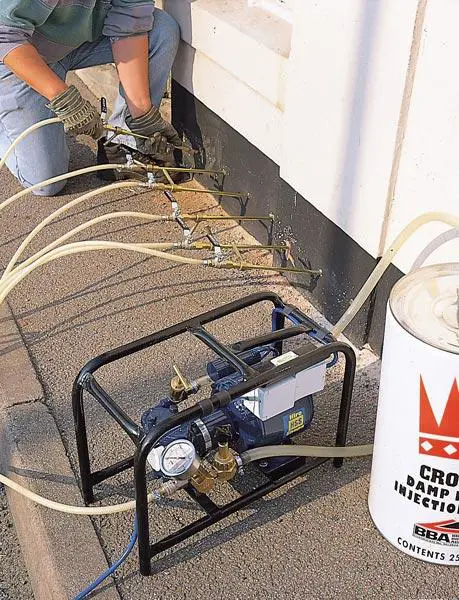Replacing an existing damp proof course can be a challenging and intricate task, involving significant structural alterations. Not only is it time-consuming, but it can also incur substantial expenses. As a solution, chemical damp proof course injection into the walls stands out as the most commonly employed and cost-effective method. This process entails drilling a series of holes around the base of the property, through which our solvent-based DPC fluid is injected. This creates a new damp proof course barrier with a life expectancy exceeding 30 years.
How Does It Function?
The new DPC operates by permeating deep into the brickwork, halting the upward movement of moisture through capillary action, thus thwarting the notorious ‘Rising Damp’ phenomenon. Specially formulated chemicals with a unique consistency facilitate the absorption of the active component, silane, forming a barrier within the capillaries to establish waterproofing.
Historical Context:
The Public Health Act of 1875 established regulations regarding ground-level damp proof courses in walls, mandating their inclusion in all properties. Consequently, most modern structures possess some form of damp proof course, typically crafted from materials like slate, bitumen, or plastic membranes. However, these protective measures can degrade over time. Factors such as subsidence-induced cracking or general deterioration can compromise the integrity of the damp course, allowing moisture to infiltrate the walls. Additionally, the damp course may be breached by rubble and debris within the cavity wall.
Concerned About Your Damp Proof Course (DPC)?
If you suspect issues with your property’s damp proof course (DPC), it’s imperative to promptly reach out to us and schedule a FREE damp survey.
![]() 01634 308188
01634 308188




